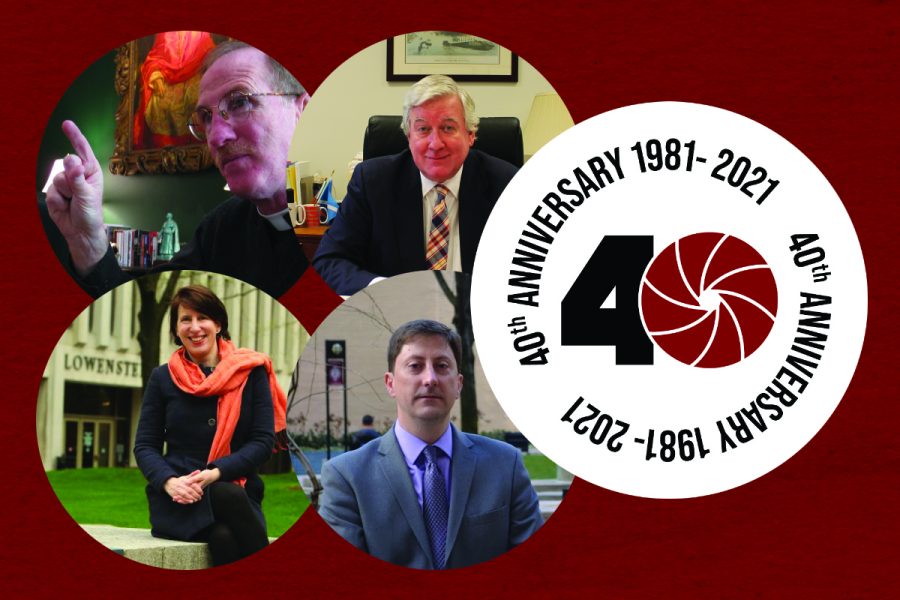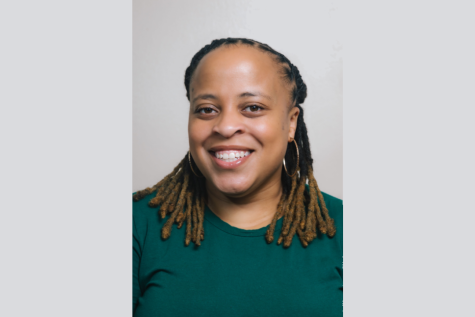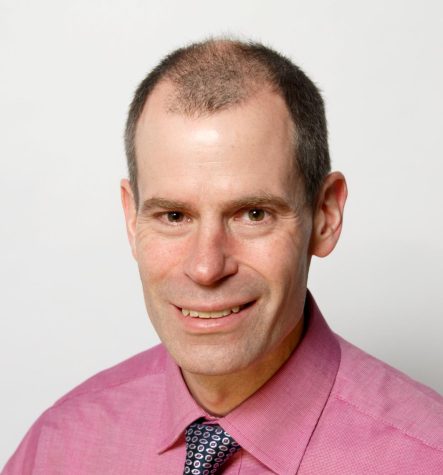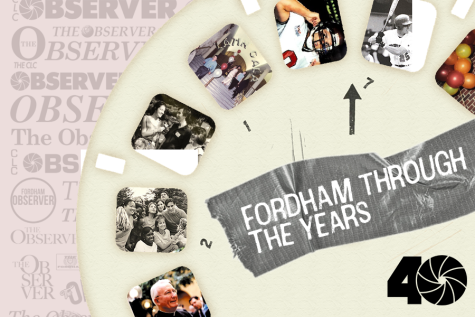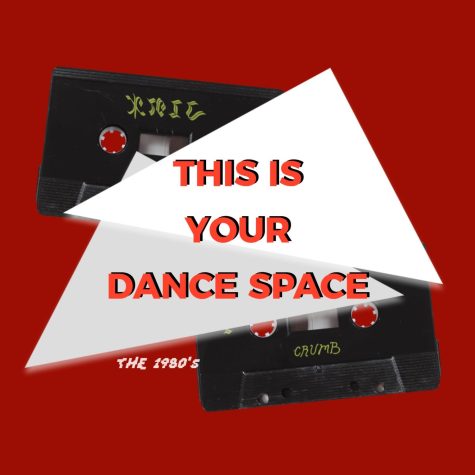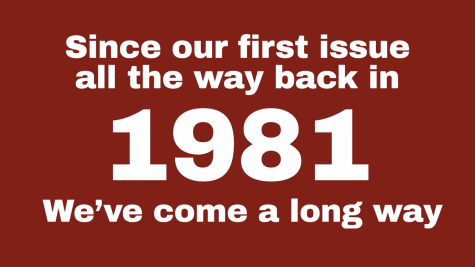Fordham Administrators Reflect on Four Decades of Student Journalism
Students graduate every four years, but the deans and faculty at Lincoln Center offer a deeper insight into the history of The Observer
Though students and editors come and go, administrators have remained over the past 40 years of Observer history.
For the past 40 years, the Fordham administration occupied the multi-dimensional role of being The Observer’s publishers, readers, interview subjects, financial advisers and everything in between.
While editors on the newspaper act almost like a revolving door — arriving as bright-eyed first-years and leaving as seniors with a handful of bylines — some of Fordham’s deans and faculty have been on campus for more than three decades and have watched as the newspaper evolved.
The longest-serving dean of Fordham College at Lincoln Center (FCLC), Rev. Robert Grimes, S.J., remembered The Observer’s infancy in the ’80s when he joked the paper could have benefitted from a “good proofreader.” At that time, the student body was so small that there were only three clubs on campus, and Grimes did not think that The Observer had much of an impact on the community.
Grimes believes that The Observer’s status on campus began to change in 1997 when the university started restructuring the relationship between Rose Hill and Lincoln Center. “When people don’t know where they are, people get scared, and for that reason, people started writing for The Observer,” he said. “And, people started reading it because they wanted to find out what was happening.”
In the late ’90s, Grimes emphasized that there was no social media or blogs. “The primary source of information for the student body at that point was The Observer,” he said. “So it took on a life and an importance in a community just because of everything that was happening.”
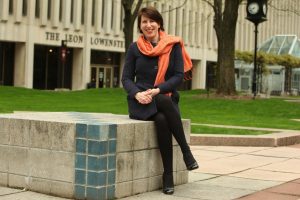
Current dean of FCLC Laura Auricchio’s first impression of The Observer is worlds apart from the stressful and social media-free state of campus that Grimes remembers.
In May of 2019, The Observer was the first outlet to break the news of Auricchio’s hire as the first female dean of the Lincoln Center campus. “I was deeply impressed, I remember taking the article and showing it to my boss at the time and saying, ‘We got scooped!’ and he was like ‘Well, good for them!’” Auricchio said, laughing. “I was so deeply impressed by the alacrity with which The Observer pounced on the story.”
Even decades apart, both of the deans recognize The Observer’s important role in keeping the Fordham community informed. And, according to University President Rev. Joseph M. McShane, S.J., keeping people informed “creates a sense of belonging for all the students who are a part of the Lincoln Center community.”
Fostering a (Complicated) Relationship
Both Auricchio and Grimes tried to foster a collaborative and genuine relationship with the students at The Observer to help editors know what’s going on around campus and assist student leaders.
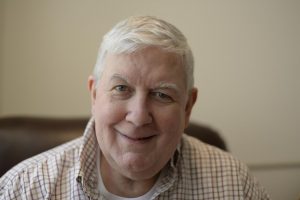
During the chaos of restructuring in the late ’90s, Grimes quickly realized that “the best thing I can do is be as open as I possibly can.” He instituted an open-door policy and welcomed editors to ask any and all questions.
In comparison, Auricchio’s only two-year-long relationship with the student editors is defined by the pandemic and Zoom calls. Despite the virtual and short nature, she stressed her support for the paper: “I think my relationship with The Observer’s editorial board is a good one, it’s been a wonderful group of people and students to work with.”
Keith Eldredge, dean of student services, had a more front-facing role keeping editors up to date with any events on campus in his former role as the dean of students at Lincoln Center. When Eldredge first took the position in 2006, Christopher Rodgers, his predecessor and now dean of students at Rose Hill, advised him to be “as involved with The Observer as possible.”
“It’s nice to support what they are doing as well as provide them with good information.” Keith Eldredge, dean of student services
Taking his advice, Eldredge began meeting with the news editors on a weekly basis to learn about the planned stories and help connect writers with the best sources. “It’s nice to support what they are doing as well as provide them with good information,” Eldredge said about the weekly meetings.
Inevitably, in some meetings, the news editors arrived with plans to publish articles that criticized the university’s administration. Eldredge acknowledged that the university can have its own priorities and that “there are things that are embarrassing to the university and things that we wish weren’t as well known.”
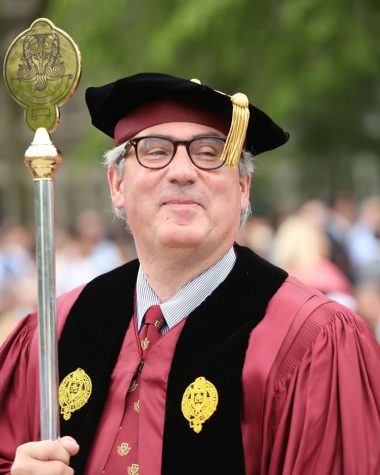
“There is probably going to be some stories I prefer (The Observer) didn’t cover, but you should, and you have the right to do that, and that’s important,” he said. “I would argue that as long as folks are following journalism standards and doing their due diligence, they should cover everything.”
However, not everyone has the same optimistic perspective of the relationship between the administration and the newspaper. Jeffrey Gray, senior vice president for student affairs, said that “technically speaking, the university is the publisher of the student newspaper.”
Gray has held his position as the senior vice president for 25 years and fondly remembers when Elizabeth Stone, former adviser to The Observer, bridged the gap between the university and The Observer. Since Stone’s departure, Gray believes The Observer’s reporting does not always reflect the due diligence and journalism standards that Eldredge tried to cultivate. “Depending on who the editors were at the time, the paper has taken on a different approach and veered off the course of objectivity into journalism that, at least to me, seems to be at times a little more subjective,” he said.
Now, Gray advocates for closer relationships among student journalists, the university and the academic departments. “I always thought that connection with the academic department and with a full-time faculty was very beneficial for our students,” he said.
“The Observer always finds a way to break stories.” Dorothy Wenzel, senior director of the Office of Student Involvement
Keeping Up With the Newspaper Industry
The advent of social media, multimedia journalism and digital publishing reshaped the entire journalism landscape — including The Observer. Instead of functioning as a predominately bi-weekly print paper, the newspaper now breaks news on Instagram and Twitter and uploads articles every day to its website.
“That was a growth experience for the world but I saw it at The Observer as well,” Eldredge said. He remembers the rhythm of the biweekly newspaper, when there was a rush of reporting before the issue and then a rest period before it all started up again. Now, he referred to the paper as “a 24-hour environment,” that is “responding to what’s happening when it’s happening.”
Dorothy Wenzel, senior director of the Office of Student Involvement and faculty adviser to The Observer, said that sometimes she and her colleagues will find out news about the university via The Observer’s reporting.
“The Observer always finds a way to break stories,” she said. “My team will text me saying ‘Do you see what The Observer just posted? They broke a new story!’”
“Students now have to work more at being creative in finding opportunities to make sure the ad revenue is as strong as possible.” Dorothy Wenzel
However, the transition to digital reporting wasn’t always smooth. Eldredge remembers when “the need to be first outweighed the need to be right.” In the early days of the newspaper’s online presence, he found that “the excitement of social media … made (journalism standards) cloudy for some people.”
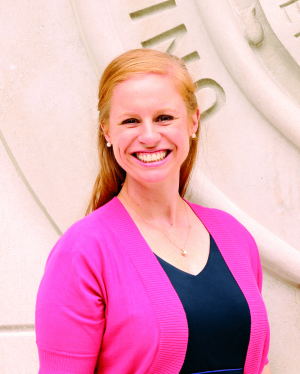
Uploading articles to a website has also given The Observer a more accessible and permanent presence beyond the Fordham community.
“It’s no longer hard-copy newspapers,” Gray said. “It’s all on social media and whatever we say and whatever we present immediately becomes public information distributed widely through social media.” Gray referred to the role of digital distribution as a “new challenge” as he wants to give editors a realistic and hands-on journalism experience while also acknowledging students’ unique access to information on campus. For Gray and his team in Student Affairs, this leads to “awkward situations where we have to deal with our student writers and editors as if we would any outside journalist.”
The shift and emphasis on the website also created a significant decrease in ad revenue that The Observer used to rely on for money. Wenzel, who helps student leaders at The Observer manage their budget, said the decrease in print ads also forced The Observer to adapt.
“In the early days, it was easy to get money. Everyone was giving money to print,” she said. “Students now have to work more at being creative in finding opportunities to make sure the ad revenue is as strong as possible.”
Building a Community
The term student journalist is unique in that it requires two contradictory identifiers — a student who belongs to a community and a journalist who must report on that community.
Eldredge said that the clearest example of this duality is best exemplified when Observer reporters are tasked with reporting on deaths within their own community. He said that beyond just getting the facts, he’s seen students go the extra mile by finding unique ways to honor students in their obituaries and even writing features with advice on how to process grief.
“We’re not just here to do a job,” Eldredge said about the mindset he sees in student journalists. “We are part of this community and this is important and we want to make sure the community is taken care of as well. We are here to inform and protect the community.”
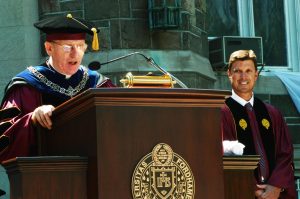
The deans and faculty also pointed to The Observer’s identity as both a newspaper and a club and how students find a community outside of their classes by working for the newspaper.
The Club Fair in February 2020 was the clearest example of the friendships between student editors for Auricchio. She said that while other student clubs and organizations had only a few people, there were roughly 25 Observer members at the event. “I could see how the students all really wanted to be there and wanted to be a part of representing The Observer,” she said.
Wenzel said some of her favorite memories working with the newspaper were seeing how student leaders grow in their roles and the sense of camaraderie between students all working to make the paper as best as possible. “I love to walk past the paper and see the interactions, the fun, the laughter … the spirited debates about articles,” she said.
“The students on the newspaper always had a strong community with one another and that really made their Fordham experience over the years,” Wenzel said. “There is so much loyalty over time because of how transformative The Observer has been for so many students’ lives.”
“Good journalism reflects a community and creates a community and binds them together. I think The Observer does that to an extraordinary degree.” Rev. Joseph M. McShane, S.J.
The deans and faculty at FCLC watched as The Observer tried to stake its claim as a reputable news source, course-corrected after mistakes and evolved to keep up with the world of journalism. While there have been countless changes, many said that the things that have stayed the same in 40 years are the drive they see in young journalists and the bonds editors had among themselves.
“Good journalism reflects a community and creates a community and binds them together,” McShane said. “I think The Observer does that to an extraordinary degree.”
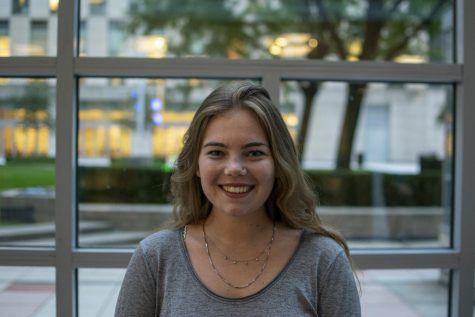
Sophie Partridge-Hicks is the editor-in-chief of The Observer. A senior at Fordham Lincoln Center, she is double majoring in anthropology and Middle Eastern studies and minoring in journalism. Sophie interned for WNBC’s Investigations Unit and is the former news editor. She is originally from London, England.
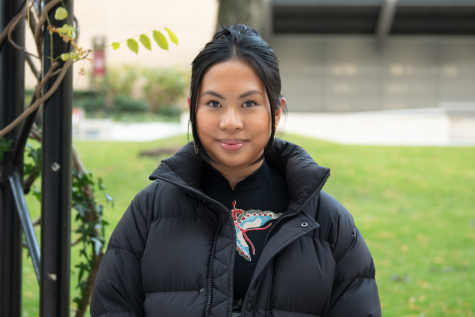
Roxanne Cubero (she/her), FCLC ’22, is a layout editor at The Observer, where she previously served as creative director. She is pursuing her Bachelor of Fine Arts in dance and new media and digital design. She was supposed to graduate in the spring of 2022, but due to an injury — and her undying love for The Observer – she’s back for another semester. Roxanne can’t think of things she’s doing while she’s not in The Observer office, because she’s always there.

